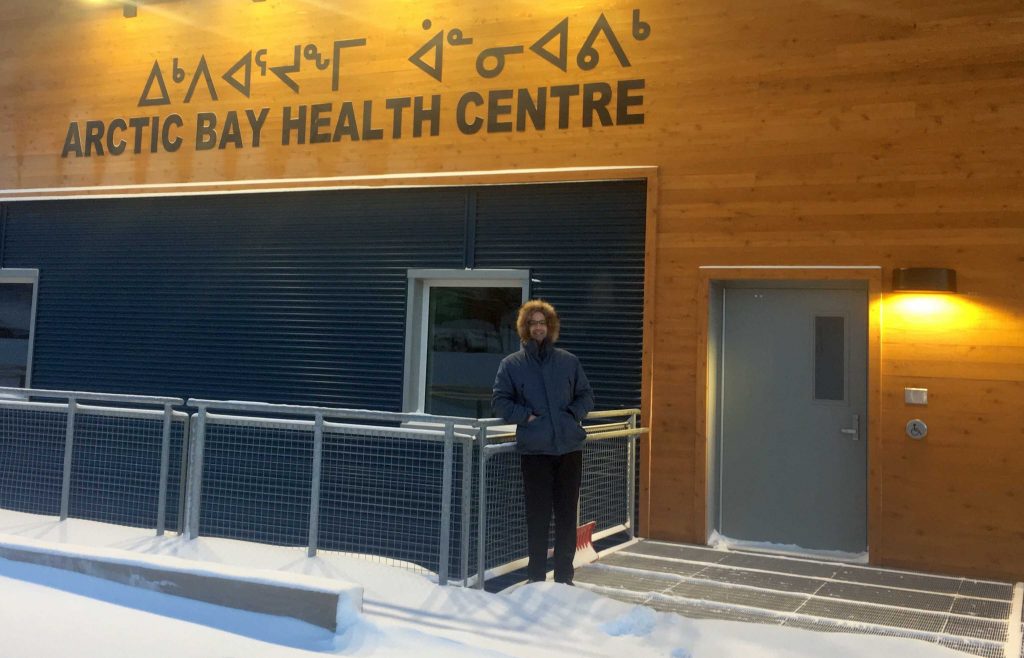DLSPH-TIFF Partnership explores migration’s impact on health in Fire at Sea Screening
 March 13/2017
March 13/2017
On March 3, 2017, the Dalla Lana School of Public Health in partnership with the Toronto International Film Festival (TIFF) hosted a screening of Fire at Sea, an award-winning documentary that illustrates the complex and compounding health issues facing migrants during their migration and resettlement. Approximately 150 students, faculty,...
Appointment of Professor Adalsteinn Brown as Interim Dean of the Dalla Lana School of Public Health
March 09/2017Sent on behalf of the Office of the Vice President & Provost, Cheryl Regehr, Vice-President & Provost I am pleased to announce that the Agenda Committee of Academic Board has approved of the appointment of Professor Adalsteinn Brown as Interim Dean of the Dalla Lana School of Public Health (DLSPH), from...
Racism: The Missing Social Determinant of Health
February 15/2017By: Liam Mitchell, Associate Director of Communications, Faculty of Medicine. Doctors and public health practitioners have long known that the conditions in which people are born, grow, work, live, and age have a profound impact on their health. They refer to those factors as the social determinants of health. But there...
Think Afro-Pink!
 February 13/2017
February 13/2017
Mid-way through Black History Month, approximately 15 mother-daughter pairs will dance their way to better breast health at Think Afro-Pink, a breast cancer awareness event on February 17, 2017 at U of T’s Hart House hosted by public health researchers. Participating in a Zumba class is a fun way to...
U of T collaborates with public sector and community partners to make Toronto communities healthier
 February 10/2017
February 10/2017
From promoting healthy relationships among newcomer and second generation teens to harnessing the “hustle” of unemployed youth, a series of community-building projects across Toronto will showcase their impact on February 10, 2017 at the Dalla Lana School of Public Health. “Globally, people living in urban areas are facing health inequities...
U of T home to first North American academic hub for health system comparison
 February 10/2017
February 10/2017
The University of Toronto is the first academic hub of the North American Observatory on Health Systems and Policies (NAO), which held its launch event on February 6, 2017 at the Institute of Health Policy, Management and Evaluation (IHPME). “Canada has one of the most decentralized health system models in...
Professor Eileen de Villa appointed Toronto’s new Medical Officer of Health
February 01/2017By: Wynna Brown, Strategic Communications, City of Toronto On January 31, 2017, Toronto City Council approved the appointment of Dr. Eileen de Villa as Toronto’s new Medical Officer of Health as of March 27, 2017. "I'm very pleased with the appointment of Dr. de Villa," said Mayor John Tory. "Public health matters...
Dr. Barry Pakes reflects on first year as Nunavut’s deputy chief medical officer of health
 January 31/2017
January 31/2017
By Jim Oldfield, Writer, Faculty of Medicine Dr. Barry Pakes has been Nunavut’s deputy chief medical officer of health for almost a year. “It's hard to create comprehensive solutions to complex health problems when you're constantly putting out fires,” says Pakes, an assistant professor at the Dalla Lana School of...
Student Blog: President Donald Trump’s implications for public health
 January 20/2017
January 20/2017
DLSPH Student Blog By: Michelle Amri, MPA, PhD student Today, Donald Trump will become President of the United States of America. Throughout the presidential election process, Trump became infamous for his voluble election promises. While he did not make many commitments directly referencing public health, many of his pronouncements can provide...
Nutrition students create recipe planning tool for Toronto women’s drop-in centres
January 20/2017If a truck-load of kale was delivered to a regular Toronto restaurant chef, it would be next to impossible for them to sell enough salads to exhaust their inventory, but that’s exactly what chefs at a local Toronto women’s drop-in centre do every week. To help chefs at Sistering drop-in...